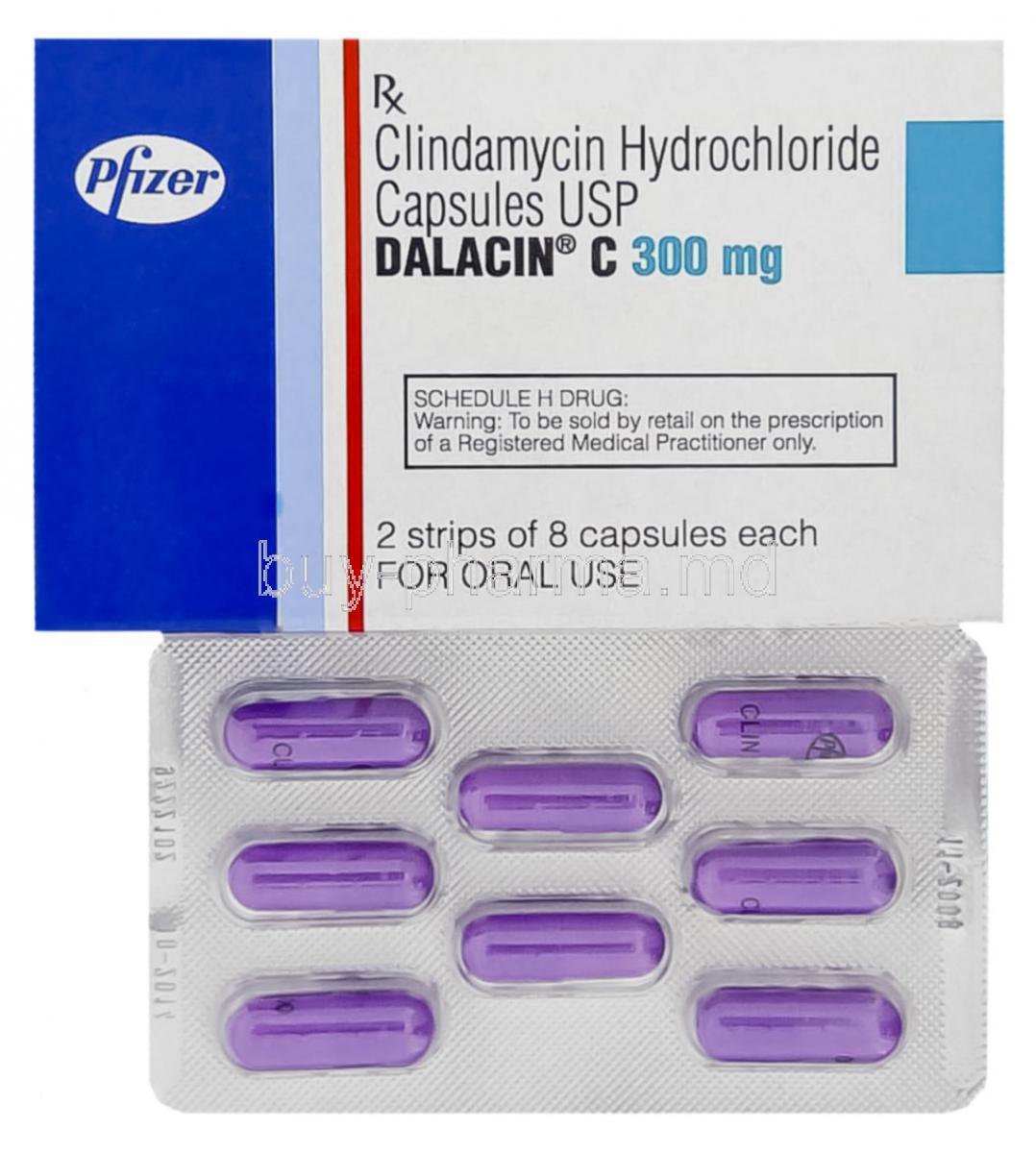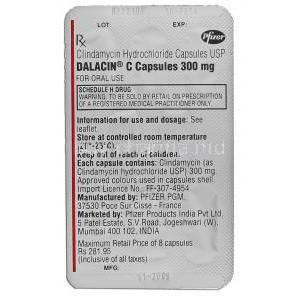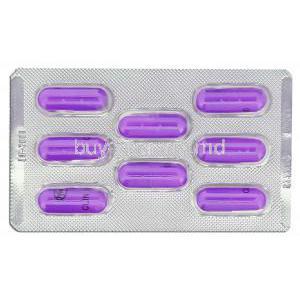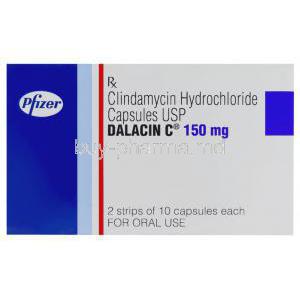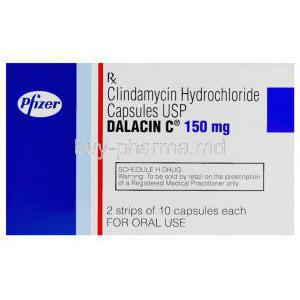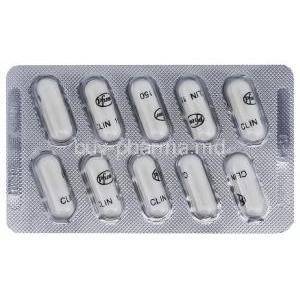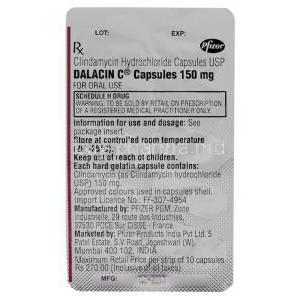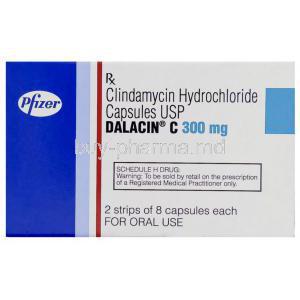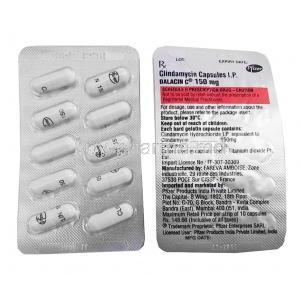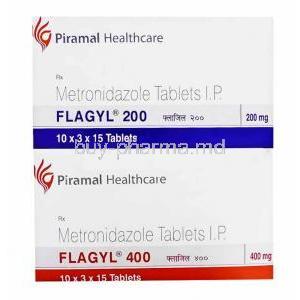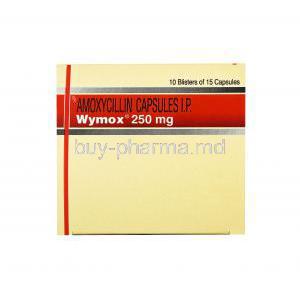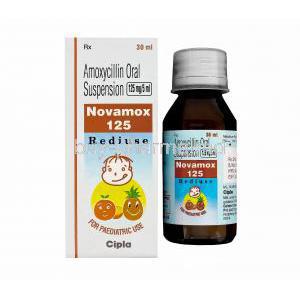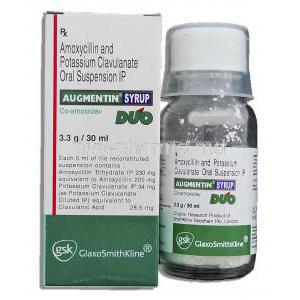Clindamycin
Uses
How it Works
Common Side effects
Patients who take Dalacin C may suffer from such side effects;
Vomiting,
Nausea,
Joint pain,
Difficulty in swallowing,
Heartburn,
Vaginal discharge,
Vaginal irritation,
Vaginal swelling,
Vaginal itching,
White spots in the mouth,
White patches on the tongue,
White spots in the throat
Introduction
Dalacin C (Clindamycin) is an antibiotic medicine often used to treat a range of serious bacterial infections. The mode of action is that it prevents the synthesis of the bacterial cell wall which is essential in the growth and replication of bacterial cells. This results in weakened bacterial cells, which undergo cell lysis.
Use
Respiratory tract infections - bronchitis, pneumonia, emphysema and lung abscess, tonsillitis, pharyngitis, sinusitis, etc.
Skin and soft tissue infections, including acne, furuncles, cellulitis, impetigo, abscesses and wound infections.
Bone and joint infections including osteomyelitis and septic arthritis.
Septicemia and endocarditis.
Dental infections such as periodontal abscess.
Dosage and administration
This medicine is available as capsules of strength 150 mg and 300 mg. The route of administration is oral. It should be taken with a glass of water and can be taken with or without food, as directed by your doctor. The usual recommended dose in an infected adult is 150 mg to 300 mg, every 6 hours. In case of more severe infections, the dose is 300 mg to 450 mg, every 6 hours.
For children, the recommended dose is 8 to 16 mg/kg/day in 3 to 4 divided doses. In case of more severe infections, the recommended dose is 16 to 25 mg/kg/day in 3 to 4 divided doses. Prior to dental procedures, the recommended adult dose is 300 mg to be taken 1 hour before the procedure, and 150 mg to be taken 6 hours after the first dose. Do not stop taking the drug once you start feeling better since the symptoms may return and be more severe once you stop taking the medicine. If you miss a normal dose of the drug, then do not take two doses at once. Just skip the missed dose and take the next one.
Warning
Tell your doctor if you have any history of galactose or lactose intolerance since this drug is known to contain sugar.
This medicine may cause a severe intestinal condition called intestinal colitis associated with clostridium difficile. The symptoms are persistent diarrhea, pain in the abdomen, or blood or mucus in the stool. In such a case, stop taking the drug and consult your doctor immediately.
Use of this medicine for prolonged periods may result in fungal infections such as candida or thrush. Such cases must be dealt with appropriately by your doctor.
Side effects
Vomiting
Diarrhea
Loss of appetite
Stomach pain
Jaundice
Altered taste
Skin reactions like rashes, hives, or redness of the skin

